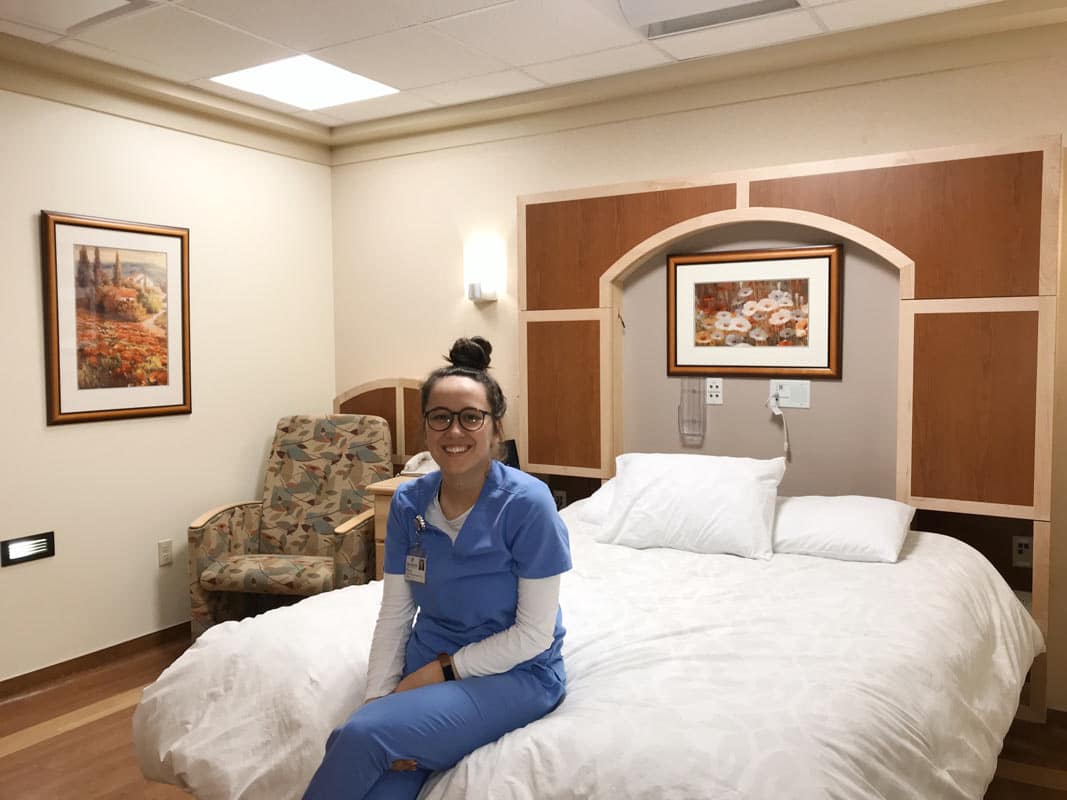Sleep/Insomnia
Sleep/Insomnia

Today officially marks the beginning of National Sleep Awareness Week. This year’s theme, Begin with Sleep, emphasizes the importance of good sleep health for individuals to ensure success and achievement with their day to day tasks and goals.
Heidi, one of our Respiratory Therapist and Sleep Disorder Specialist, gave us great insight about insomnia, and what the Sleep Center at Madison Memorial Hospital offers to its patients:
How common is insomnia?
Heidi: Insomnia is a very common thing, but I would say we have more patients who struggle to stay asleep than we do who struggle getting to sleep, which can also be in the category of insomnia. Patients don’t usually come here unless they have a sleep problem but there are also a lot of sleep problems that people don’t realize are sleep problems. If you stop and think about the signs and symptoms of insomnia and the signs and symptoms of depression, they’re almost identical. So, for most of our patients, we are treating for both.
What should a patient know before coming to the Sleep Center?
Heidi: Let me break the process down. You need to get a referral for a sleep lab from our sleep doctors or your primary care physician. We then go through an authorization process with insurance companies to make sure the sleep study will get paid for. Once we get that approval, we will contact the patient and schedule them for a sleep study. The studies are usually conducted overnight, patients typically arrive between 8:30 p.m. and 10:00 p.m.
Are the sleep studies conducted for a variety of sleeping disorders?
Heidi: Yes. We see pediatric patients as well as conducting narcolepsy tests. We also offer home sleep tests for those whose insurance will not cover in lab sleep tests.
How would you define sleep hygiene?
Heidi: We advise our patients to do sleep hygiene just like treating their sleep like a baby: go to bed at the same time and wake up at the same time. Get off electronics, at least one hour, preferably two before you go to bed. You shouldn’t have a T.V. in your room and if you do, shut it off before you go to bed. We encourage a healthy diet and exercise, because that can improve your sleep. If our patients are very stressful, we ask them to try and find something to help them relax before they go to bed. We also recommend no pets in the room, usually pets are very distracting to patients.
Can lack of sleep hygiene cause insomnia or make it worse?
Heidi: It can make it worse, but we also live in a time where people want a quick fix and will say things like “I made this change for two nights and it’s not helping.” We’ll often need to reset your circadian rhythm and it takes time. It can take weeks or months depending on the person, so, we encourage them to stick with it.
Are there alternatives to a lifestyle change if needed? Do you prescribe sleeping pills?
Heidi: People tend to treat everything with a pill, but we don’t work that way. It does happen, but it’s not our first line. We need to know that changes the patient is willing to make to their health to help themselves because we don’t want them to get dependent on pills. Our doctor is a D.O. so she tries to talk about the issue and figure out what changes need to made by figuring out the root cause so to give a pill to get people to sleep or keep them awake, that is not our first line and often times not even our second.
If you struggle staying asleep or falling to sleep at all, call us today to help you find a solution to your problem and ensure that you are getting the rest your body needs.
